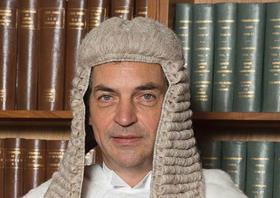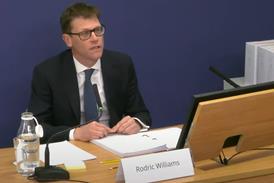Magic circle firm Linklaters has secured an order barring its former director of business development from giving interviews about what was described in court as an 'ongoing struggle with women in the workplace'.
In Linklaters LLP v Frank Mellish, Mr Justice Warby ruled that the public interest in the conduct of large firms was outweighed by Linklaters' 'legitimate interest' in confidentiality over three matters.
The firm sought the order against Frank Mellish, who left the firm in January after being given six months' notice in June last year. After his departure Mellish emailed senior partners announcing that he intended to 'share my impressions of the current culture at Linklaters', in particular 'the ongoing struggle Linklaters has with women in the workplace'.
To that end, he would be giving interviews in the first two weeks of February to discuss three matters referred to in the judgment as the Munich Incident, the NY Settlement and the London Settlement.

Mellish, an Australian understood to be currently in France, neither attended nor was represented at the court hearing. Ruling for Linklaters, Warby J, who presides over the media list, said: 'The Court is always wary of granting injunctions against absent parties. That includes, in particular, injunctions which affect free speech.' However he was satisfied that all practicable steps had been taken to notify Mellish.
He continued: 'It is accepted by the claimants that there is, in general terms, a legitimate public interest in the due performance by large firms such as Linklaters of their social and moral duties towards their staff. But the existence of such an interest cannot justify indiscriminate disclosure of otherwise sensitive confidential information which others have a legitimate interest in keeping confidential.
'A general desire to talk publicly about the "culture" of a large firm is not enough to justify the disclosure of such details,' Warby concluded.
A spokesperson for Linklaters said: 'We can confirm that the firm sought and has been granted an interim injunction in the terms set out in the judgment handed down by the court today. We cannot comment further.'
Andrew Caldecott QC and Aidan Eardley, instructed by Linklaters, appeared for the claimants; the defendant was neither present nor represented.

















![David Lester (senior partner at Blythe Liggins), Darryl Barnes, Jagdeep Sandher (head of dispute resolution at Blythe Liggins)[4]](https://d1d8vslyhr7rdg.cloudfront.net/Pictures/274x183/4/2/8/116428_davidlesterseniorpartneratblytheligginsdarrylbarnesjagdeepsandherheadofdisputeresolutionatblytheliggins4_981603_crop.jpg)





